As its new report reveals a “catastrophic decline” in the natural world, the WWF and Sir David Attenborough say change is needed and kids can help. Saving the planet and everything that lives on it is more important to children than anyone, because they’ll have to live with any losses much longer than their parents.
With that in mind, the World Wildlife Fund (wwf.org.uk) (WWF), which has just published its flagship Living Planet Report revealing nature is being destroyed by humans at a rate never seen before, has issued separate information to help children and young people understand what they can do to help stop this “catastrophic decline” – which includes, for example, African elephant populations in the Central African Republic declining by up to 98%.
The Living Planet Index, which tracks what’s happening in around 21,000 groups of mammals, birds, reptiles, amphibians and fish, shows wildlife populations around the world have, on average, declined by 68% since 1970, and the trend isn’t slowing down.
WWF ambassador Sir David Attenborough says the world needs to alter its perspective on nature, pointing out there has to be: “A change from viewing nature as something that’s optional or ‘nice to have’ to the single greatest ally we have in restoring balance to our world.”
The WWF says intensive agriculture, deforestation and the conversion of wild spaces into farmland are among the main causes of nature loss, while overfishing is “wreaking havoc” with marine life.
It says 75% of the Earth’s ice-free land surface has been significantly altered, most of the oceans are polluted, and 90% of wetland area has been lost. This destruction of ecosystems has led to a million species (500,000 animals and plants, and 500,000 insects) being threatened with extinction over the next 100 years.
The conservation charity says many of these extinctions are preventable, but warns that without urgent global action, life on Earth will be pushed to the brink, stressing: “Saving the environment is vital if we want to save ourselves.”
Matt Larsen-Daw, education manager at WWF-UK, says: “Young people will face a future very different from today’s world, and will be living with the consequences of decisions made by previous generations. It’s essential they understand environmental issues, so they’re equipped to make the best choices for the future of people and the planet.
“As the Living Planet Report 2020 launches, we’ve condensed the findings to communicate the science specifically to younger audiences. Young people will be one of the strongest forces behind real-world change for the planet.”
Here’s what WWF says young people can do to help save the planet…
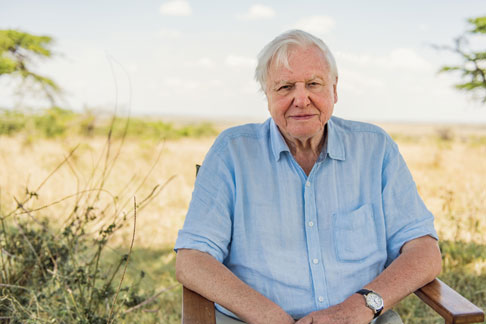
1. Rethink the way you eat
About a third of the food produced around the world is never eaten – it might be wasted at the point it’s produced, or during transportation, packaging and sale. WWF says food waste is responsible for roughly 8% of global greenhouse gases, so it’s one of the biggest problems to tackle in the fight against the climate and nature crisis.
To do this, says Larsen-Daw, the type of food, and the way food is produced, needs transforming, so it’s more environmentally-friendly. That means farming that uses less space (so wildlife habitats aren’t destroyed), less water and fewer chemicals that harm the environment.
Try at home: “An easy place to start is to try eating and cooking with more plant-based foods, sourcing local produce and choosing food that hasn’t been produced in a way that causes deforestation,” suggests Larsen-Daw.
The WWF says the free mobile app Giki (giki.earth) provides ethical and sustainability information on more than 250,000 products, including whether the packaging is recyclable and if ingredients, including palm oil, are responsibly sourced.
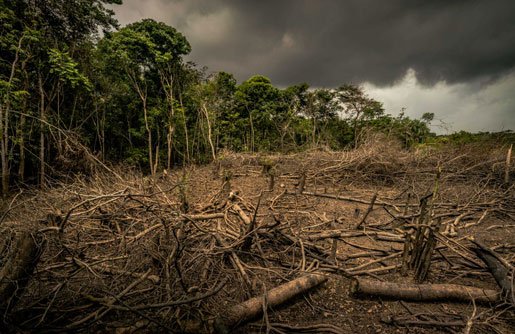
2. Use your voice to tackle deforestation
“In the time it takes to say ‘deforestation’, another chunk of forest the size of a football pitch is destroyed. That’s every two seconds, every single day,” says Larsen-Daw.
The main cause of this deforestation is food production, he says, including the food we eat in the UK. “The truth is, most people simply don’t realise the food we eat can be causing deforestation,” he points out. “If we’re going to change things, first we need everyone to know about the problem.”
Try at home: Talk to your family, friends, teachers and even your local MP to make sure everyone knows about the issue and that it matters. Find out more about deforestation, the root causes and what you can do to help by reading ‘5 Things You Can Do To Help The Amazon Rainforest‘ on the WWF’s website.
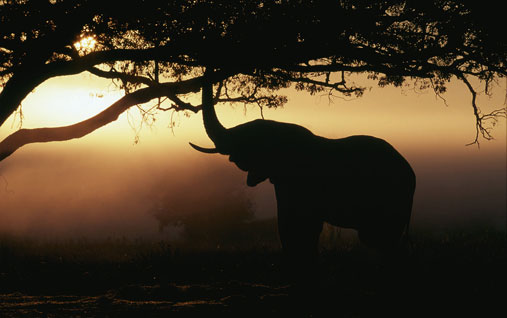
3. Help restore biodiversity
There’s a huge variety of plant and animal life on Earth and this biodiversity is vital for a healthy planet, says the WWF, as we rely on living things for clean air, fresh water and the conditions needed to grow food.
There are plenty of ways to support biodiversity while helping to slow climate change and protect people and wildlife from its effects, it says. For example, carefully choosing places to plant more forests can improve landscapes and soil quality, and capture carbon dioxide to help fight climate change. In towns and cities, trees improve air quality, prevent floods and keep residential areas cool.
Try at home: Learn about the nature around you, how different species benefit the environment and how you can help them. Make small changes in your garden and local communities to welcome wildlife – plant native flowers, build a variety of habitats to attract insects, birds, mammals and reptiles, and let things grow wild.
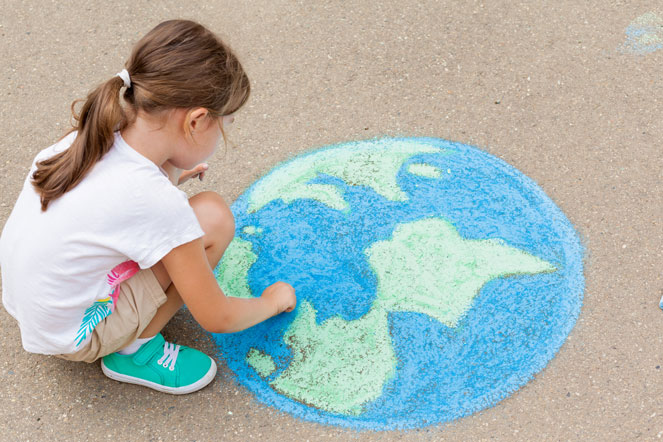
4. Measure your environmental footprint
Our current lifestyles – including the way we eat and travel – mean we need 1.6 times more resources than our planet can generate. When we add up everyone’s environmental footprint, it’s too big for the planet to support forever. If we can lower the amount of resources that each of us use, our overall impact can start to go down.
Try at home: Start by measuring your own environmental footprint with the WWF’s online calculator (https://footprint.wwf.org.uk/) – it may give you tips you’ve never thought about before. Then, get family and friends to measure their footprints too. Once you know your environmental footprint, it will be easier to find the things you can change at home.
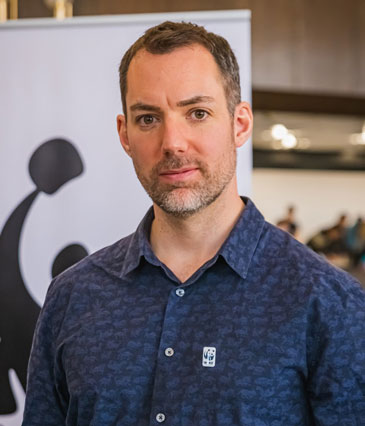
5. Pass on single-use plastic
Single-use plastics have infiltrated our natural world and even our diets. Around eight million tonnes of plastic are thought to end up in our oceans every year, causing serious harm to wildlife.
Try at home: Make sure you have a reusable bag with you when you go to a shop and try to find loose fruit and vegetables where possible that aren’t wrapped in plastic. If you spot a brand or supermarket continuing to use lots of single-use plastic, call them out.
